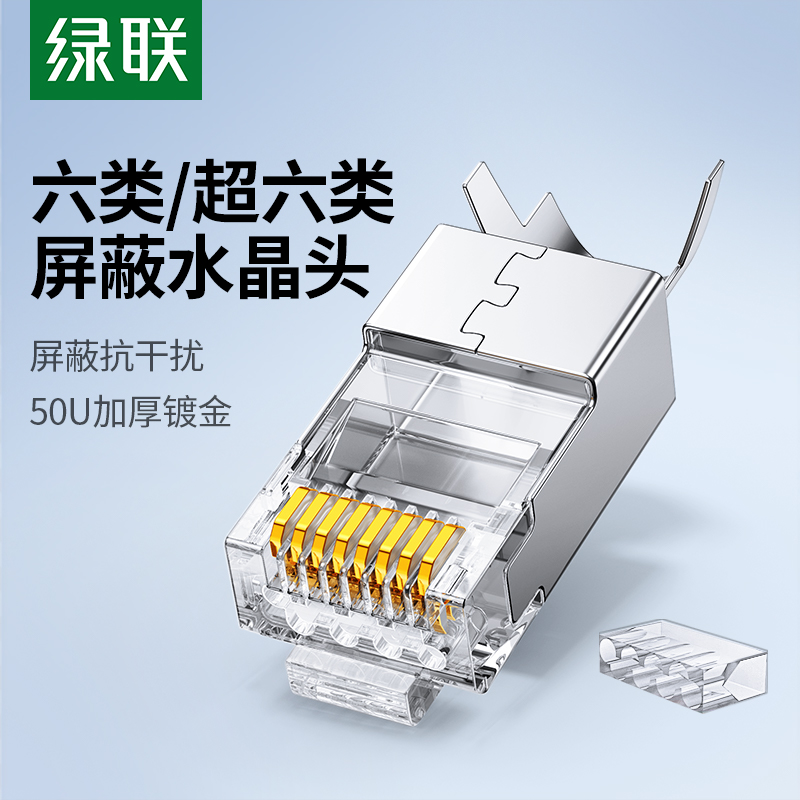"网线的性能与质量:你了解多少?"
网络青年
2024-10-05 08:02:32
0次
**网线的性能与质量:你了解多少?**
在数字化和网络化的时代,网线作为连接各种电子设备的桥梁,其性能与质量显得尤为重要。网线的性能和质量的优劣,直接影响到网络连接的稳定性、传输速度以及使用寿命。那么,你对网线的性能与质量又了解多少呢?接下来,我们将一同探讨这一话题。
一、网线的性能
1. 传输速度:网线的传输速度是其最重要的性能之一。传输速度的快慢取决于网线的类型,如常见的五类线、超五类线、六类线等。一般来说,类别越高,传输速率越快。
2. 稳定性:网线的稳定性指的是在网络传输过程中,信号的稳定程度。稳定的网线能够保证数据传输的连续性和准确性。
3. 抗干扰性:网线在传输过程中可能会受到电磁干扰,抗干扰性强的网线能够有效地抵抗这些干扰,保证传输质量。
4. 兼容性:不同设备之间的连接需要网线具备良好的兼容性。兼容性好的网线能够适应各种设备和接口,提高连接的成功率。 二、网线的质量 1. 材料:优质网线的材料选用的是高纯度、高导电性的铜芯,这样的材料能够保证传输效率和质量。 2. 编织工艺:网线的编织工艺直接影响到其抗拉性和抗磨损性。优质的网线通常采用精密的编织工艺,使得网线更加耐用。 3. 屏蔽层:带有屏蔽层的网线能够有效地抵抗外界电磁干扰,提高传输的稳定性。屏蔽层的材质和工艺也会影响到网线的质量。 4. 长度与标称:网线的长度也是衡量其质量的一个重要因素。正规厂家生产的网线,其长度标称准确,不会出现虚标现象。 三、如何选择优质的网线 1. 根据需求选择类型:根据实际需求选择适合的网线类型,如五类线、超五类线、六类线等。 2. 查看材料与工艺:选择材料优良、编织工艺精密的网线。 3. 注意屏蔽层:根据使用环境选择带有屏蔽层的网线,以提高抗干扰性。 4. 选择正规品牌:购买时选择正规品牌和厂家,确保产品的质量和售后服务。 **The Performance and Quality of Network Cables: How Much Do You Know?** In the digital and networked era, network cables, as a bridge connecting various electronic devices, are particularly important in terms of their performance and quality. The performance and quality of network cables directly affect the stability of network connections, transmission speed, and service life. So, how much do you know about the performance and quality of network cables? Let's explore this topic together in the following sections. **Part One: The Performance of Network Cables** 1. Transmission Speed: The transmission speed is one of the most important performances of a network cable. It depends on the type of the cable, such as Category 5, Category 5e, and Category 6 cables. Generally, the higher the category, the faster the transmission rate. 2. Stability: Stability refers to the level of signal stability during network transmission. A stable network cable can ensure the continuity and accuracy of data transmission. 3. Interference Resistance: Network cables may be subject to electromagnetic interference during transmission. Cables with strong interference resistance can effectively resist these interferences and ensure transmission quality. 4. Compatibility: The connection between different devices requires network cables to have good compatibility. A cable with good compatibility can adapt to various devices and interfaces, improving the success rate of connection. **Part Two: The Quality of Network Cables** 1. Materials: High-quality network cables use high-purity, high-conductivity copper cores as their material, which ensures transmission efficiency and quality. 2. Wiring Process: The wiring process directly affects the tensile strength and wear resistance of the cable. High-quality cables usually adopt precise wiring processes, making them more durable. 3. Shielding Layer: Cables with a shielding layer can effectively resist external electromagnetic interference and improve transmission stability. The material and process of the shielding layer also affect the quality of the cable. 4. Length and Nominal: The length of a network cable is also an important factor in assessing its quality. Cables produced by regular manufacturers have accurate length markings without being falsely labeled. **Part Three: How to Choose High-Quality Network Cables** 1. Select the Right Type Based on Needs: Choose a suitable type of network cable based on your actual needs, such as Category 5, Category 5e, or Category 6 cables. 2. Check Materials and Processes: Choose cables made with high-quality materials and precise wiring processes. 3. Consider the Shielding Layer: Select a cable with a shielding layer based on the usage environment相关内容
热门资讯
网线故障排查与修复技巧
本文介绍了网线故障的排查与修复技巧,包括测试网络连接、检查物理连接、使用工具检测等排查方法,以及更换...
网线故障排查与解决方法:让网络...
本文介绍了网线故障排查与解决方法,包括物理检查、连接设备及网络设备状态等方面,针对常见故障如网络不稳...
网线的历史与发展趋势
网线历史悠久,从电话线到光纤,逐渐发展成高速、高带宽的数据传输工具。未来趋势包括高速、高带宽、光纤到...
千兆网络、万兆网络与网线的选择...
摘要:选择适合的网线是确保网络速度和效率的关键,根据网络速度需求选择Cat 5e、Cat 6或Cat...
“解析网线传输速度与距离的关系...
网线传输速度与距离关系受多种因素影响,包括网线类型、信号衰减、干扰和噪声等。较远的传输距离可能导致信...
网线故障排查:网络产品连接不畅...
本文介绍了网线故障排查及网络产品连接不畅的解决方法,包括检查物理连接、测试网线通断、重启网络设备等步...
网线的种类与用途:你了解多少?
本文介绍了网线的种类与用途。包括屏蔽网线、非屏蔽网线、光纤网线和同轴电缆,各有不同应用场景。屏蔽网线...
网线与网络产品的兼容性:如何确...
本文讨论了如何确保网线与网络产品的兼容性及性能。选择合适网线,了解产品兼容性,正确安装连接,配置调试...
网线的长度与速度:你需要知道的...
本文详细介绍了网线长度与速度的关系,指出长度对网络体验的重要性。还提到了如何优化网线长度提高速度,以...
网线连接技巧:如何正确连接两个...
文章摘要:本文介绍了连接两个网络设备的技巧和步骤,包括准备工具和材料、连接步骤及注意事项。需确保网线...

